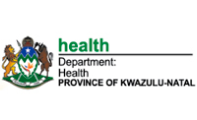Linking communities with scientists
Community Advisory Boards (CABs) help CHRU engage with the community and are a very important link between communities and clinical research sites.
Each CAB is an independent body with a constitution. It is independent of CHRU and acts as a bridge between the research sites and the community to ensure that studies proceed properly and trial participants’ concerns are heard and responded to.
CHRU has active CABs that promote community engagement and educate community members about our clinical trials. CHRU has managed to retain participants in clinical trials above 95%. The CAB provides health education to communities with a particular focus on HIV/AIDS, TB and prevalent cancers like cervical cancer.
The efficient and ethical implementation of clinical trials requires strong community engagement.
Voluntary informed consent
Voluntary informed consent is the cornerstone of health research ethics. CHRU ensures that all the ethical and legal requirements for voluntary informed consent for clinical research participation are fulfilled. CHRU also adheres to the South African Guidelines for Good Practice in the Conduct of Clinical Trials with Human Participants in South Africa and globally.
Working according to the highest standards of Good Clinical Practice (GCP), CHRU complies with the requirements of other relevant regulations such as the South African Health Products Regulatory Authority (SAHPRA).
As an advisory structure, it ensures communication between researchers and communities. This improves public understanding of clinical trials.
Members of the CAB are volunteers and reflect a diverse mix of skills, and have cultural insight into the communities participating in the clinical trials.
The CAB consists of:
CHRU’s CAB meets every second Friday to review current and upcoming clinical trials. A Youth CAB has also been established to respond to the needs of young people.
Role of Community Advisory Board members
Community Advisory Boards (CABs) are a critical component of the CHRU’s community engagement strategy and are an important link between local communities and CHRU’s four main clinical research sites. The CAB liaises with clinical trial participants and the broader communities.
The CAB member’s role is to:
CAB members participate in the Scientific Committees and Global Community Advisory Board of the ACTG Network. The CHRU CAB is a member of the Global Community Advisory Board of the Aids Clinical Trials Group (ACTG).
Annually, a CHRU CAB member is selected to attend the ACTG NIH annual conference and present the South African experience. They return to share best practices with other CAB members and CHRU communities.
The central function of the CAB is to support the researchers by providing advice about proposed studies, sentiments and opinions of any new research protocols, progress of existing studies, and dissemination of results from completed studies.
CAB membership is voluntary and members agree to certain terms of membership as outlined in the site-specific CAB constitutions and standard operating processes.
Participant stories




























%20(1).png)



